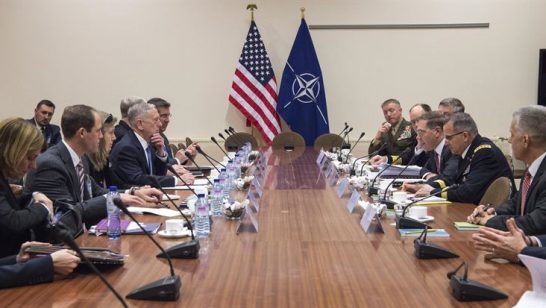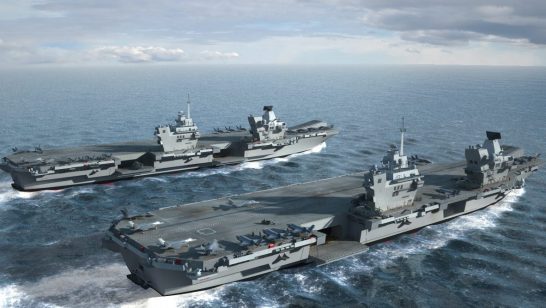
Before deciding whether it is the right time for NATO to resume dialogue with Russia, one should make one thing very clear: the suspension of dialogue with Russia has been in response to the aggressive path adopted by Russia in respect to its neighbour, Ukraine. The illegal annexation of Crimea and the subsequent military destabilisation of eastern Ukraine, both directly and indirectly, through the moral and material support to the separatists are acts challenging the very fibre of the current international and European legal order and security architecture.
The Wales NATO Summit Declaration is unequivocal about it, formulating in consequence a number of precise demands on Russia: “We condemn in the strongest terms Russia’s escalating and illegal military intervention in Ukraine … We do not and will not recognize Russia’s illegal and illegitimate ‘annexation’ of Crimea. We demand that Russia comply with international law and its international obligations and responsibilities; end its illegitimate occupation of Crimea; refrain from aggressive actions against Ukraine; withdraw its troops; halt the flow of weapons, equipment, people and money across the border to the separatists; and stop fomenting tension along and across the Ukrainian border”
The very fact that these demands are still fully valid almost one year after their formulation and after the signing of the Minsk II agreement, indicate that Russia did not implement any of them. Then, the first question would be why should NATO be the one to reverse its position, offering resumption of dialogue with Russia, when the latter did not move one inch towards meeting the Alliances’ demands? Wouldn’t that create a public perception that NATO is “blinking first”, thus undermining both its international credibility and internal cohesion?
And, secondly, why now, when some people even conclude that, for all practical reasons, Russia has already attained its strategic aims vis-à-vis Ukraine: Crimea is now Russian territory, Russia has established a considerable degree of control over Ukraine’s decisions through the military conflict it fuels in the east of the country and NATO and EU membership for Ukraine is off the table.[1]
If one looks at the content of the dialogue with Russia in general, one could notice that it is structured in three domains: first domain is dialogue on specific technical issues (transit towards Afghanistan, for instance). The second domain is dialogue on international issues of mutual interest, like Iran, Syria international terrorism etc. And the third domain is dialogue on any other general issue of common interest, like economic and commercial relations.
Out of the three domains, the second – dialogue on international issues of common interest like Iran, Syria, international terrorism etc – has never been interrupted.[2]
The resumption of dialogue in the third domain – general issues of common interest, like the economy and commercial relations – would seem premature for now. It will convey to the public the wrong message that, by returning to the “business as usual” atmosphere existing before the crisis, Russia (which did nothing of what it has been demanded to do) is rewarded, rather than sanctioned, only because the West is more willing than Russia to return to the good old days of profitable collaboration.
Consequently, the only viable dialogue NATO could offer Russia is on technical issues of mutual interest aimed at “managing” the sudden confrontation generated by Russia’s aggressive moves. The renewed brinkmanship Russia has engaged in lately is capable of producing situations, which could easily get out of control, with devastating consequences. And, in that respect, our recent European Leadership Network (ELN) dialogue in London on that topic has a number of useful suggestions to that effect (CBMs, accords to avoid incidents etc) worth pursuing.
Moreover, such a dialogue would be necessary if one takes into consideration that both Russia’s aggressive military modernization and the response of the West have set in motion relatively long term trends, which would bring about inevitably an increased emphasis on the military dimension in relations between the two sides. It will resemble the Cold War period, when confrontation dominated cooperation, without being a new Cold War, given the degree of interdependence created between the two sides in the meantime.
However, even if dialogue will gradually be resumed with Russia, strategic reassurance of NATO’s eastern allies should be kept firmly in place, both as a material guarantee that, if necessary, Article V of the Washington Treaty shall be honoured and a deterrent to Russia to avoid attempting an attack on the Alliance.
[1] Of course, then there is another question arising: why does Russia keep intervening, risking maintaining the sanctions in place and further international isolation? The only logical answer is that, on the field, there still are some tactical unattained objectives (control over the entire territory of Donetsk and Luhansk and the two land corridors, one towards Crimea through Mariupol and the other from Crimea towards Transnistria through Odessa). Besides, any diminished support for the separatists would incur an internal cost in Russia.
[2] Most probably, because Russia considers – strategically – those issues as of interest to her, too, and – tactically – because she felt probably that it was important to preserve some collaboration, to compensate for the closing of dialogue on most other matters.
The opinions articulated above represent the views of the author(s), and do not necessarily reflect the position of the European Leadership Network or any of its members. The ELN’s aim is to encourage debates that will help develop Europe’s capacity to address the pressing foreign, defence, and security challenges of our time.



